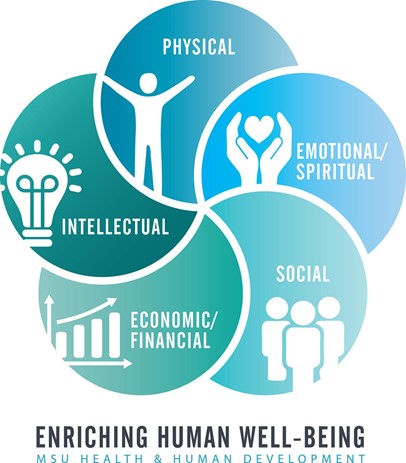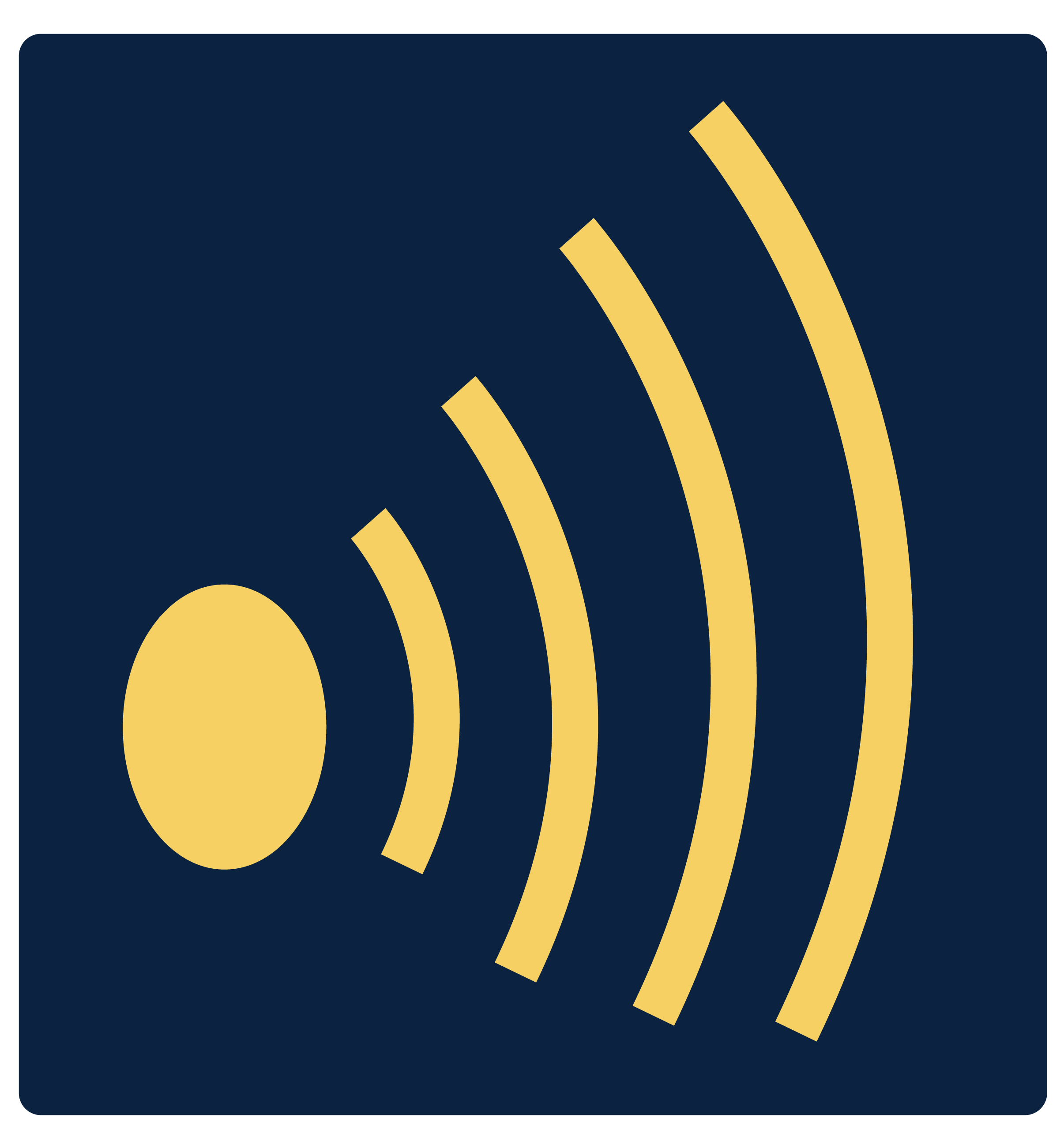What is Mental Health?
Mental health is just one component of our physical health (other components of our
physical health include our nutritional health and our cardiovascular health).
The term mental health refers to the state of our emotional, psychological, and social
well-being. Our mental health is directly related to our cognitions (thoughts), emotions
(feelings) and behaviors (actions). Mental health helps us determine how we relate
to others, handle stress, and make healthy choices.

This model illustrates how our well-being is comprised of five components (the Physical,
Emotional/Spiritual, Intellectual, Economic/Financial, and the Social), and how these
components are linked together.
As stated above, Mental Health is only one aspect of the Physical component. This
illustration also serves as the logo for the Health and Human Development Department
at MSU.
 Podcast:
Podcast:
Why is Mental Health Important for Ag Producers?
YOUNG FARMERS PODCAST
-- WAYFC Takeover 4: Miles Griffin and Amanda Doughty on farmer mental health
Spotify: https://open.spotify.com/episode/52hArqkQLGmOPUxFuKBdnN
Apple Podcasts: https://podcasts.apple.com/us/podcast/wayfc-takeover-4-miles-griffin-and-amanda-doughty-on/id1406564488?i=1000499116311
*Trigger Warning: In this episode, there are discussions of suicide and mental health.
Amanda Doughty is a licensed therapist. She and Miles Griffin live on a 20-acre farm in Washington. They discuss the intersection between their professions, the need for awareness, and resources to combat mental health issues among farmers.
Mental Health and Stress
Mental health and stress are linked. Small amounts of manageable stress can be good for us. For example, stress can help us improve our resilience, which is our ability to recover and move forward despite setbacks. However, when we experience a great deal of stress, or when stress is chronic (it remains over a long period of time), it can be a source of mental health problems. Learn more about stress here.
What are mental health problems?
Mental health problems can be thought of as challenges or difficulties pertaining to your mental state. Some examples include:
- Feelings of sadness or hopelessness that make it difficult to enjoy daily life
- Inability to concentrate on work due to constant worrying or anxiety
- Increasing use of substances to manage unpleasant emotions or thoughts
When mental health problems become severe enough, or last long enough, it is possible for these problems to become a diagnosable disorder.
Why is mental health important for our overall health?
Mental health is a part of our physical health, and having poor mental health can impact your overall health. Similarly, having a long lasting or chronic physical health condition can lead to deteriorating mental health.
Can mental health change over time?
Just like how you can make improvements to your nutritional health (by eating more micronutrients) or to your cardiovascular health (by getting more exercise), you can also make improvements to your mental health. It is important to remember that your state of mental health is fluid, and can be impacted by life events, fluctuating economic conditions, and life stages. For example, caring for an ill parent or child, experiencing economic hardship, and working long hours can all impact your mental health.
However, your capacity to cope with certain mental health challenges can change (and improve!) over time too.
How can I improve my mental health?
Some things that affect mental health such as genetics, environment, and life events cannot be changed. However, building and maintaining strong supportive relationships, working with a professional to achieve a balance between positive and negative emotions, and establishing strong coping skills can protect against some of the negative effects of poor mental health and chronic stress. Learn more about coping with stress here.
What is Mental Illness?
Mental illnesses, also called mental disorders and psychological disorders, can only be determined by a qualified professional, such as a medical doctor, nurse
or therapist. Some people may need prescription medication to help manage their mental
illnesses.
It is important to know that mental illness is common. Approximately one in five adults in the United States has a mental illness (NAMI,
2019). The World Health Organization estimates that at some point in their lifetimes, approximately
half of all people in the United States will experience mental illness.
More information about mental health, mental problems and mental illnesses can be found at the following sites.
More information on Mental Health
- NAMI Mental Illness Facts and Information
- NAMI: Know the Warning Signs of Mental Illness
- NAMI: Mental Health by the Numbers (infographics)
- NAMI: Mental Health Fact Sheet Library
Find Mental Health Support Services
If you are unsure about the different types of mental health providers and how they can help you or a loved one, this MontGuide might help: Understanding and Finding Mental Health Providers in Montana (MSU Extension Montguide)
MSU Extension- Mental Health First Aid Courses and Trained Instructors
Mental Health First Aid (MHFA) is an evidence-based, 8-hour mental health literacy course developed in Australia. MHFA prepares participants to respond with greater knowledge, confidence and compassion when an adult is experiencing a mental health problem or is having a mental health crisis. Youth Mental Health First Aid (YMHFA) is similar, but the focus is on training adults to respond to youth, with attention to issues that are specific to youth (developmental considerations, risk factors, etc.). Both versions train participants to use a five-part action plan to provide aid. For more detailed info about these programs, go to: https://www.mentalhealthfirstaid.org
Are you interested in taking this course? If so, a complete list of Mental Health First Aid Trained Instructors in Montana is available here.
MSU Extension-Youth Aware of Mental Health Program
Youth Aware of Mental Health (YAM) is a universal intervention mental health promotion program that aims to raise mental health awareness about risk and protective factors associated with suicide. Delivered to all youth of a group/ class the program includes knowledge about depression and anxiety. It also enhances the skills and emotional resiliency needed to deal with stress and crisis. The format of the YAM intervention empowers youth to think, verbalize, and discuss important mental health issues, such as depression, anxiety, and coping strategies, in a context that is meaningful to them.
MSU Extension YAM programming is provided through a close partnership with the MSU Center for Research on Rural Education. More information about the YAM Program and a list of YAM instruction sites can be found here: https://www.montana.edu/crre/youthawareofmentalhealth.html.
